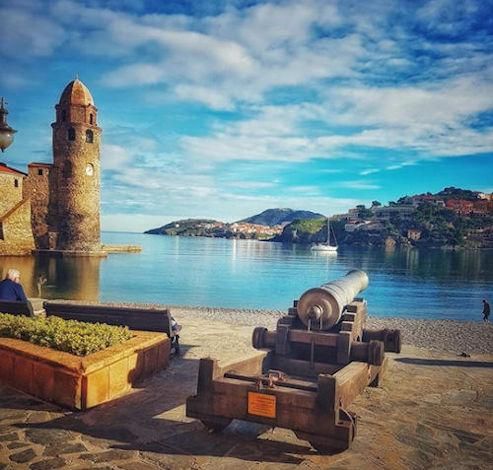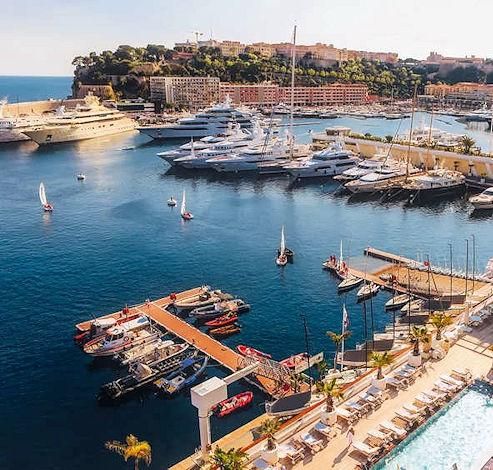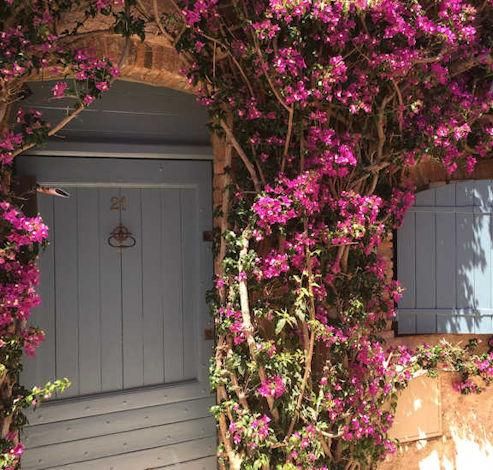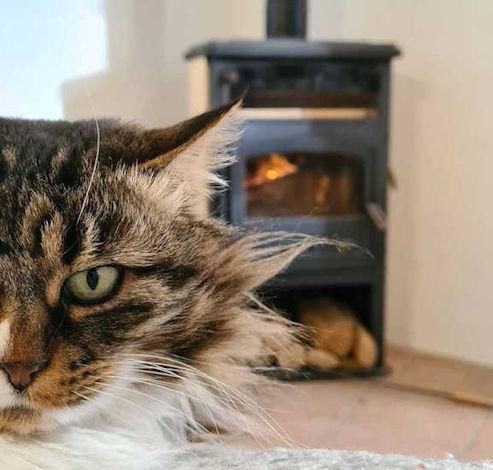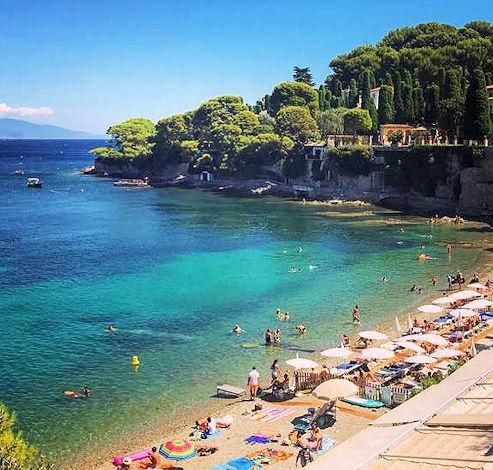Property checklist for choosing the right house for long term rental in France
- Last updated on .
- Hits: 15213
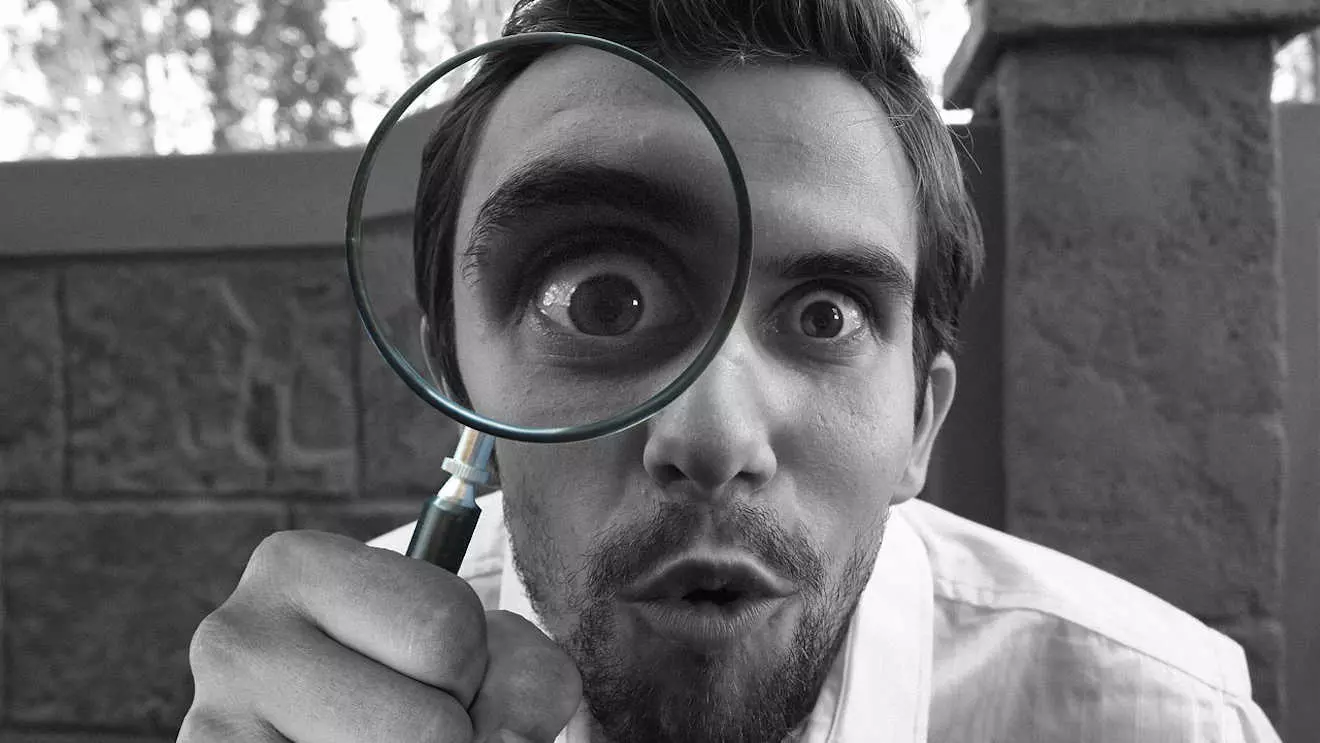
If you have decided on spending a number of months in the South of France during 2024-2025, what factors do you need to consider when you come to choosing your long term rental property?
Choosing the right house to rent in France effectively comes down to 3 main considerations: size, budget and location. If you are looking for a house for long term rent in France during 2024, there are plenty of available properties to consider, but will these prove to be the right choice for your circumstances. For instance the rural farmhouse would be idyllic during June through to September, but will it prove to be such a good choice when you have to heat it over the winter? Here we cover the main questions you should consider to give you a checklist on suitability.
At Long term rentals in France we have established a reputation as the leading provider of houses for long term rent in France. One reason for this is that we visit all of our long term lets personally to capture more information about the layout of the house, the facilities and the locality. Another reason is that we live permanently in the South of France and we have amassed a great deal of local knowledge about the different regions and areas. We have also rented long term in France ourselves, so we are able to provide first-hand advice.
We have been involved in providing long term rentals in France for over 17 years. We have both rented houses ourselves and also arranged over 2,000 long term rentals for customers during this time. Below you will find a number of important points to consider when renting a property long term as well as answers to 8 of the most common questions that we are asked by our customers.
Checklist for renting in France long term
Before you even get to the point of looking for a property to rent in France, my advice would be to make sure that you have the following information organised:
Moving to France planning information
- Copies of your ID (passport photo page) - for rental contracts, opening bank accounts, utility bills.
- Original + copies of your birth certificates and marriage certificates
- Try if you can to open a French bank account before you arrive (not always possible). Try to reach out to a French bank that is affiliated to your current bank.
- Work out what evidence you will use to prove your ability to pay the rent. This could be a work contract, retirement statement, bank statement, reference letter from your bank, business accounts, copies of rent or mortgage payments, income from property that you rent out.
- If you have pets, make sure that the vaccinations for your animals are all up to date and you fully understand the requirements for bringing pets to France (micro-chipping) and the freighting costs for transporting your pets (this is a good source of information: Bringing pets to France).
- If you are moving to France with children, pull together all records of their vaccinations, birth certificates, etc.
- Establish your budget. Work out what you can afford to pay for your stay. Forget about earning any income whilst you are in France (unless you can work remotely). The budget is purely based on your home country net income during the period of your stay.
The reason why I recommend that you get all this information together before you even start to look for a place to rent in France, is that it gets you mentally prepared. You move from it being a pipe dream to being in a position where you are 'good-to-go'. The decision is fixed. It is now just a question of when, where and what?
Long term rent in France - location
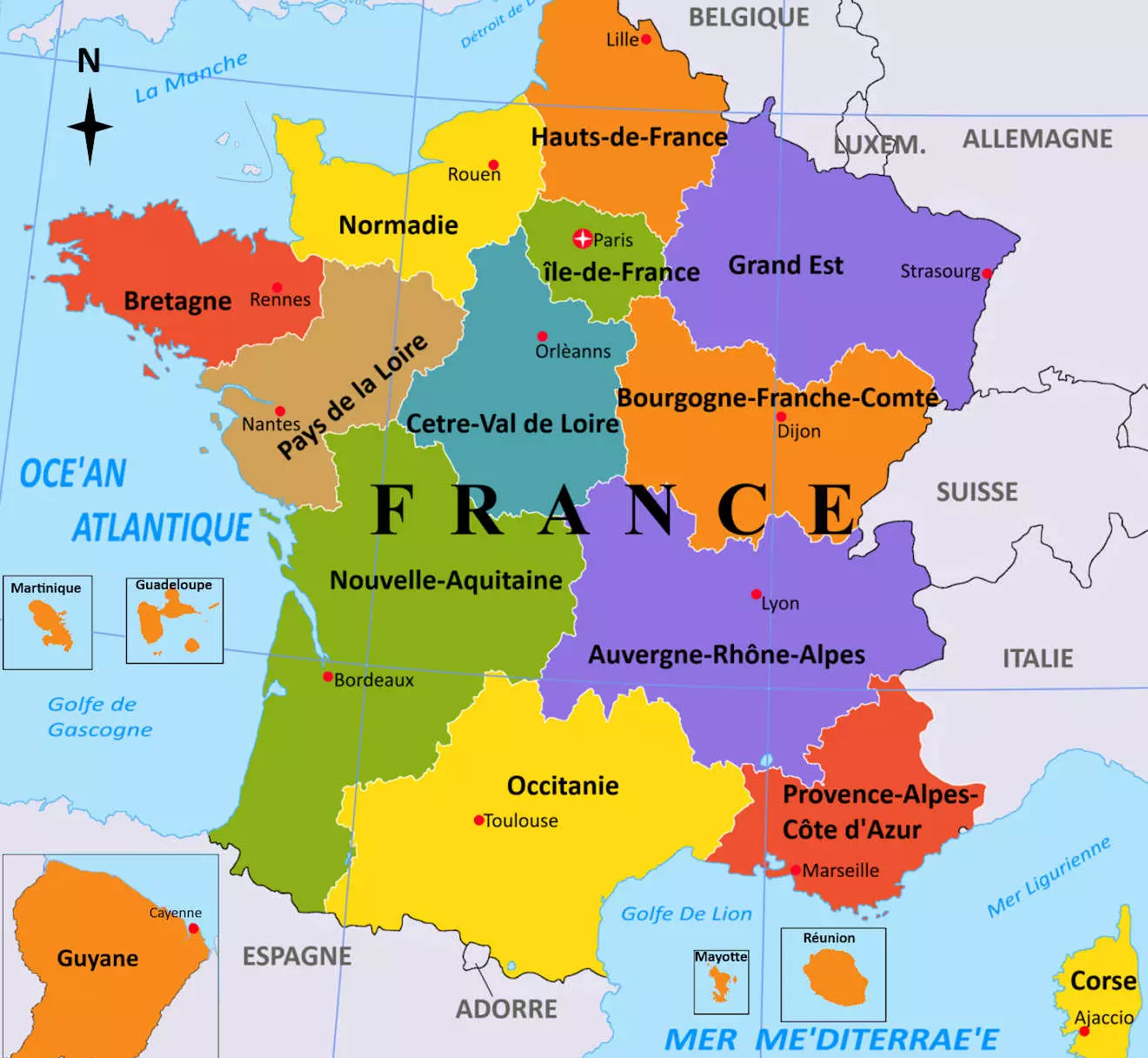
Now you need to do your research on the area you want to live. In my experience, the customers who know exactly where they want to live in France - even down to the town and village - end up having a more successful rental experience than those people who have no real idea.
If you are searching for houses for long term rent in France, then you need to make sure that the location is absolutely right for you. Too often we find that we are organising long term lets for customers who have previously booked to stay in an area too quiet in the winter or too noisy at night or too far away from amenities. Whilst you may crave the peace and tranquillity for a holiday, the 25 minute drive to the supermarket can soon become annoying when you are here for a few months.
Now France is a big country. I would start by splitting France into 7 parts (North-West, North-East, Paris, East, West, South East and South West). Then subdivide each of these parts into quarters. This then gives you the basis for eliminating certain areas and including some areas in your shortlist. To narrow down your chosen area to live, I would recommend:
- Make a wish list of 3 items you want from the region in France you will be living in. These are big things like City or Rural, Mountain or Coastal, Vineyard landscape or Farming country, Hot or Mild, Cultural area or Rustic. Also, think about what you are interested in and how you spend your time. Don't make the list too long, you are never going to find the perfect place to live.
- Transport connections: check the TGV routes, number of local airports, road network, etc.
- Research the annual climate - summer temperatures, average rainfall, winter climate, wind speeds (trust me, Provence is beautiful but the Mistral makes it almost unlivable during the winter period)
- Check the tourist attractions in the region. It sounds stupid, but if you can't compile a list of 10 sites/attractions in the area that you would actually want to visit, then cross that region off your list. I have met one person in 10 years who actually likes to visit churches. But it seems to me that every Rough Guide and Lonely Planet guide I have ever read is like a directory of old churches to visit. If the #1 attraction for a town or region is a church, then it is sure fire indication that there is not much going on in that area.
- Check out average house prices in some of the regions you have chosen This is a great resource (written in English) and published by the National body of Notaires: French real estate prices. House prices (whether they are going up or down and the average sale price) gives you a great insight into whether the area is 'dying' or dynamic. It will also give you a good indication of the rental prices you will expect to pay.
- Blog posts and forums - do as much reading as you can of Expat forums which based on specific regions you are considering. I always follow 3 rules when evaluating a blog post. If the writer starts a sentence with "The French . . ." you can guarantee that they probably know only 2 French people and they are generalizing across a population of 65 million people. Secondly, a person's experience of living in France will be heavily shaped by whether they can speak decent French. Finally, some people seem to live their lives on Forums. Some are genuinely helpful, others have an angle they are trying to push or projecting an image of a life they wished they had. So do take everything you read with a large pinch of salt
The reason why I recommend that you narrow down the area before even considering the house to rent, is that I have seen it all too often that people fall in love with the house and forget the area. They then arrive and for the first month they try to convince themselves that the location is perfect. The second month the doubts creep in and by the third month they are planning 'trips away' to different parts of France. It is true that you will never know what the area will truly be like until you arrive, but you can minimize the surprises by doing your due diligence.
Similarly, I had a client last week who wrote to me looking for a house in an isolated rural location, with mountain views, 15 mins from the beach and walking distance to a boulangerie, bar, shops and excellent restaurant. I am sure that this perfect place obviously does exist somewhere in France, but I struggled to find anything which could tick all of these boxes.
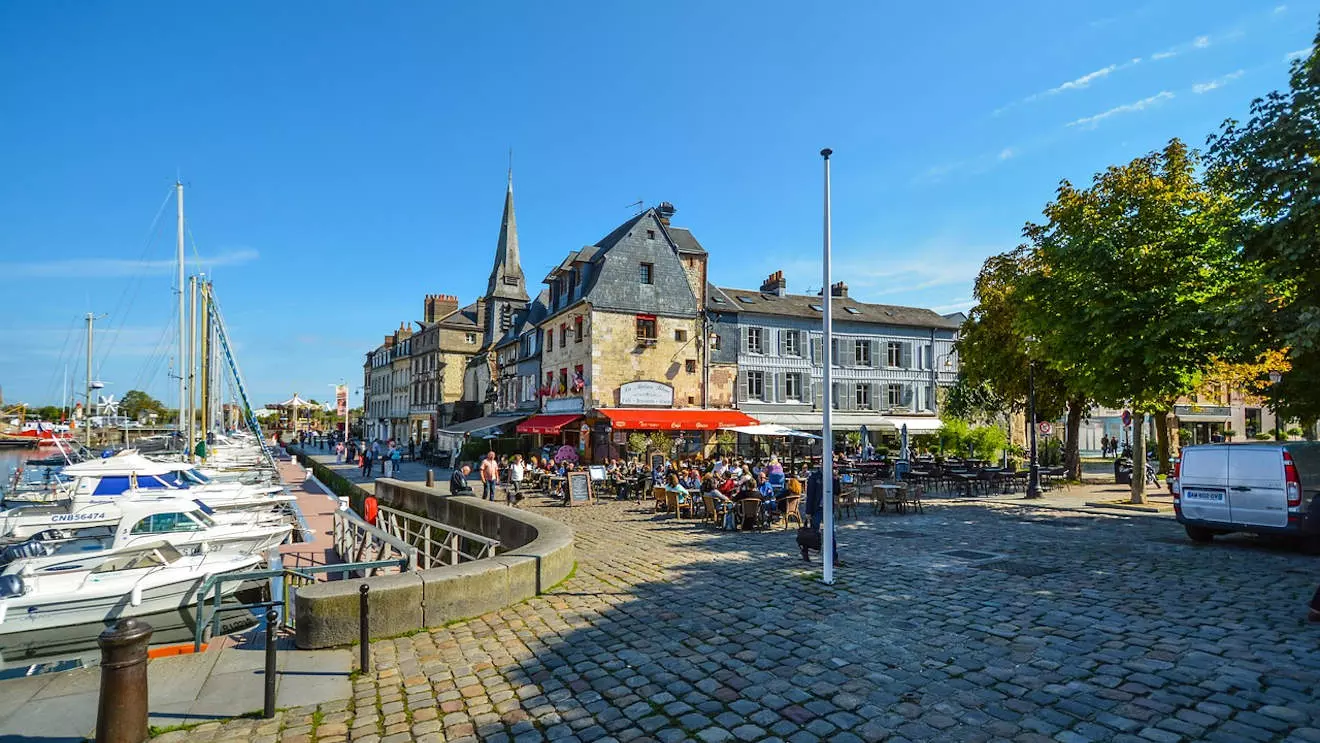
Once you have narrowed down the region in France that you would like to move to, your next challenge is to discover the Top 3 towns that you would like to be based near. So for example, I live in the Languedoc region in South France. It is a region which is 250kms (180 miles) top to bottom and 100kms (60 miles) across. It has a population of 2 million people. It has an extremely varied landscape of mountains, beaches, vineyards, lakes, etc. In this large region, there is only a handful of places that I would actually like to be based near: Uzes, Sommieres, Montpellier, Pezenas, Marseillan, Collioure and Lagrasse. But if you have never visited the region you have chosen, how do you narrow down the town where you will be based near? Here are some pointers:
- How many times is the town mentioned in guide books and tourism sites
- Check out Pinterest for the number of photos posted by visitors
- Do a virtual tour by using Google Street view
- Visit some real estate websites and see what types of properties are on the market (especially discounted properties)
- Check out the number of festivals held in the town and the time of the year they are held
- Go onto VRBO or Airbnb and count the number of properties advertised in the town and surrounding area (this will also give you an indication of the number of long term rental properties that will also be available)
- Visit the website of the local commune or Mairie
- Check the length of the Wikipedia entry for the town and check for evidence of life (as opposed to historical references)
Once you have selected 2-3 favourite locations to live, you are now well on your way to making your decision on where you want to live. But, you now need to consider what these favoured locations are like during the winter period. You can get a fairly decent indication of what is happening in the town 'out-of-season' by checking the following resources to give you a reasonable idea of what is happening in the town:
- Check out TripAdvisor for restaurants and see how many are closed for service
- Check Booking.com for local hotels and see how many rooms the 2nd and 3rd most popular hotels have available
- Check the events list on the local tourist office website
- Read the local Expat forums to see what is happening. If people are discussing last night's TV programmes or Brexit, then you will soon realise that there is not a lot happening
- Go to Instagram and type in #[town name] and see what sort of posts come up
For more help on narrowing down your search of where to rent in France please read Where to rent in France long term and our new article on the 10 Best places to live in France. Theis last article is based on actual research conducted over a 2 year period, examining over 208 Quality of Life factors in over 34,000 French villages, towns and cities. The results of the research were quite surprising.
In our experience over the last 9 years, we find that these villages and towns are good spots for a long term rental in France:
- Pezenas, Herault - a beautiful historic town, popular with artists, antique dealers and international clients
- Uzes, Gard - another beautiful town popular with 'foodies'
- Sommieres, Herault - a gorgeous market town with a lovely river running through it
- Fayence, Cote d'Azur - away from the hustle and bustle of the coast and with a wonderful weekly market
- Marseillan, Herault - a Port town very popular for winter rentals
- Collioure, Pyrenees-Orientales - a stunning coastal town at all times during the year
- Ceret, Pyrenees-Orientales - a rural town, yet close to the beaches famous for its cherries and Modern Art Museum
- Caux, Herault - lovely little wine village close to Pezenas and with a couple of restaurants, a shop, bar, pharmacy, boulangerie and butcher
- St Genies de Fontedit, Herault - another popular wine producing village set among the vineyards
- Capestang, Herault - set on the banks of the Canal du Midi and with plenty of life in the town all year around
Long term rentals in France - size
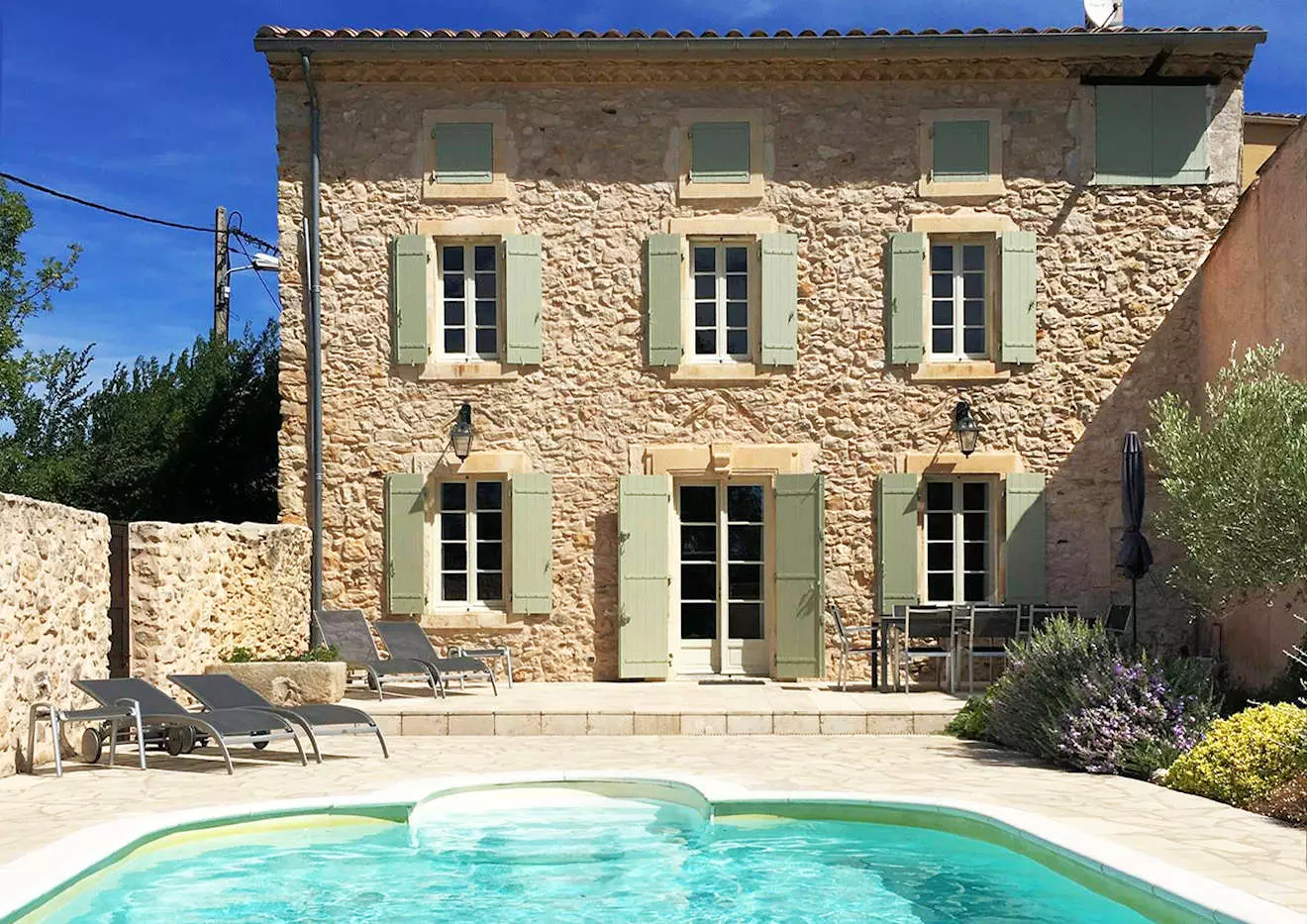
The size of the property is also crucial. Whilst it is important to ensure that there is plenty of space for visitors, it is also important to realise that you will be paying for empty bedrooms for most of the year. We fell into this trap ourselves and after our first year in France we ended up renting a medium sized property and then renting a small gite around the corner for our friends and family whenever they came out. This proved to be a good solution because it also gave us the space to continue to work and live our normal life.
The other crucial issue, is that whilst having a spacious property is wonderful in the summer, in the winter you will need to heat all this 'space'. Electricity in France is expensive. Even if you go for alternatives (wood burner, gas fires or petrol burners) then you will need to factor in a monthly budget of €100 per 100m2.
Long term rental in France - budget

Finally, you also need to consider your budget. In our first year we rented a house far too expensive for what we could really afford. We arrived in France with enough money to last us 7 months. But we burnt through this in 2 months. Now we find France just as expensive on a day-to-day basis as the UK, especially the weekly shop and the utilities. You also get nice surprises like the 'taxe de habitation' which can hit you for around €700-€900. So we would certainly recommend that you do your sums thoroughly when you are looking at different rental options.
As a rough guide, this is the standard monthly rental price that you would be looking to pay for:
- 2 bedroom houses for long term rent in France (no outdoor space): €400-€600
- 2 bedroom long term lets in France with terrace or balcony: €550-€700
- 4 bedroom long term lets, South France (no pool): €900-€1100
- 4 bedroom long term lets in France with pool: €1200-€1500
The prices above are for standard long term rentals between the months of October to May. The rental prices do not include utility bills (for which you should budget for around 15%-20% of the rental price). You will obviously pay much more for luxury or unique rental properties and there will be an additional cost of around 15% for rental properties in Toulouse, Montpellier, Avignon, Cannes and Nice. In Central Provence and also in Cote d'Azur, the rental prices can vary quite a lot depending on the location (up to 3 times the amounts quoted for rental properties in Mougins, Antibes and Aix-en-Provence).
The budget is often the most difficult criteria to satisfy. I think that people have this notion of France from 30 years ago when it was a relatively cheap place to live. Unfortunately, the [Spoiler] here, is that this is no longer the case and in certain locations there is now a real pressure on available rental properties and prices can be sky high (Lyon, Montpellier, Bordeaux, Toulon, etc).
But one thing that comes up time and time again, is that we are often contacted by customers who are a couple, yet they are looking for a minimum of 3 bedrooms for around €700. As you will see above, unless you are living halfway up a mountain, you will not be able to rent a 3 bedroom house in France for under €800 per month. You also have to question why 2 people really need a 3 bedroom property. For 95% of the time, those extra 2 bedrooms are going to be empty and the customer is paying for them to be empty. It is lovely having people come over to stay with you, but if you are on a fixed budget you are paying for your friends and family to have a free holiday. I am sure that there is a perfectly good B&B round the corner that will be more than happy to accommodate your friends for a few days.
It is the same consideration for clients looking to rent a house in France for a full 12 months. At the outset, renting a house with a pool to enjoy over the summer really is a must. But then when you think about it seriously, you will only be able to use that pool for 3 months of the year. The price difference between renting say, a 3 bed house without a pool (€900 per month), to a 3 bed house with a pool (€1500 per month) is about €7000 per year. If you swim in that pool 100 times during the summer it is costing you €70 per swim. You also have the other factor to consider, which is why would the Owner rent the house to you for 12 months, when they can earn a similar income from 12 weeks in the summer from holiday rentals?
Property checklist: Common questions asked by long term rental customers

Now that you have narrowed down you choice of area of where you want to live in France, now begins the search for a property to rent long term. We have included here a list of questions that we are most freqently asked by out long term rental customers. The information is primarily directed at monthly rental properties in the South of France, but from what I have seen the information can apply to pretty much the whole of France except for Paris and the French Riviera (which are a whole different ball game).
1. What will be the price of the monthly utility bills
This is a sensible question, but it is very difficult to answer. If you have the heating turned up to 26°C, then you will be paying out a lot in electricity. In recent years it has certainly become more common for utility bills in France to be charged based on an annual fixed price contract (for water, electricity, telephone and internet), so the Owner should be able to give you a fairly accurate estimate of the likely bills.
As a general guide, we generally advise clients to budget for 15%-20% of the monthly rental price to go towards the utility bills. So for 2 bed apartment with a monthly rent of €700 pcm, you will normally pay around €150 for the utility bills. If you are renting a large 4 bedroom property then you can expect to pay €200-225 per month.
- Electricity in France is quite expensive compared to other countries. You should be extremely careful when using wall mounted electric radiators. These are primarily designed to be used for providing background heating to a room (charging up during the night on the cheaper electricity tariff and then releasing the heat first thing in the morning and during the evening). I would certainly keep the radiators on a low heat and use a supplementary heating source (such as gas fire or oil heater) to provide the additinal heating when it gets really cold.
- WiFi internet is normally a fixed price (starting from €30 per month). If internet TV is also added to the package, you can be paying around €50 pcm.
- Water bills in France are normally provided based on a fixed annual contract. So again the monthly amounts should not vary. But most landlords will take a reading of the water consumption during your stay and if it is above the guidelines of the fixed annual contract, then you will be expected to reimburse the Owner for the higher charges that will be applied to their billing contract in the following year.
- Extras: we apply a fairly commonsense rule that if you have consumed it, you should pay for it. As an example, in France most gas hobs are run off a butane gas cylander that you buy at a local garage. These generally last for around 4 months. Most landlords will expect you to replace this gas cylander (around €25) if it runs out.
Just as a note, most of the long term rental properties that we advertise do not include utility costs within the rental price. We encourage most of our Owners to charge a monthly provision towards the utility costs (sort of an estimate of what the average monthly bills will amount to). Then every quarter the Owner provides a statement of what has actually been charged. The Owner and the Tenant can then 'settle up' the over-payment or under-payment.
2. Is the house suitable for long term rentals over the winter?

There is a world of difference between a property which is rented out during the warm summer months and one which is suitable for all year around rentals. Even in the South of France, temperatures can drop to near freezing. So you do have to be careful. When you are choosing a property for long term rental, I would pay close attention to the following items:
- Heating system for winter months - this is especially important if you are looking to rent in Brittany, Normandy, the Dordogne and the Charente. In the South of France you only really need heating for 2-3 months a year, so Gas or Oil central heating systems are quite rare (and also expensive). In our own house we rely on a wood burner and portable oil fan heaters which work just fine. Also check that the fireplace works. All landlords in France have to get a certificate proving that the chimney is usable.
- Insulation - just as important as the heating supply, also make sure that you check that the house is properly insulated. Whilst open beamed roofs exposing the clay ceiling tiles are delightful to look at in the summer, you will not think so in the midst of winter.
- Internet speed - especially important if you intend to work remotely from France or watch on demand TV/stream films (there is a website where you can test the internet speed from different providers for every village (see www.ariase.com).
- Mobile/cellphone coverage - most areas of France now have very good 3G and 4G mobile/cellphone coverage. However, especially in rural areas, there can be locations where it is still impossible to pick up a decent reception (my home office being the obvious example). Again, there is a very handy website where you can check the mobile cellphone coverage by each village (see www.ariase.com).
- Kitchen - check that it is equipped with good cooking facilities, large refrigerator/freezer and plenty of cooking utensils
- Washing machine/dryer - most properties in France do not come with Tumble Dryers (if this is one of your list of requirements, then you may struggle).
- Outdoor space - this is probably more important in the winter than the summer months. I always tell people I live in France because of the mild winters not the hot summers. You want to make sure that you can take advantage of that winter sun
- Services - close to supermarkets, vets, doctors, hair dresser, bars, restaurants, etc. Being stuck halfway up a mountain is idyllic in the summer, but it can be a grind in the winter
- Car parking - most village houses or properties in towns will not come with private parking
- Linen - unless you will be driving down to France, you will need to find a house to rent where the linen is provided.
One thing which I would say from the outset is that we often deal with customers who have a whole string of requirements. What I would say, is just split these requirements into essential and desirable. So especially with American clients, a Tumble Dryer is often quoted as essential. There are 65 million people living in France and I would probably say that around 60 million of them live quite happily without a tumble dryer. If that is one of your key requirements, then you may have a hard time finding a suitable place to rent in France.
3. How much is the deposit for the long term rental in France and when is it paid?
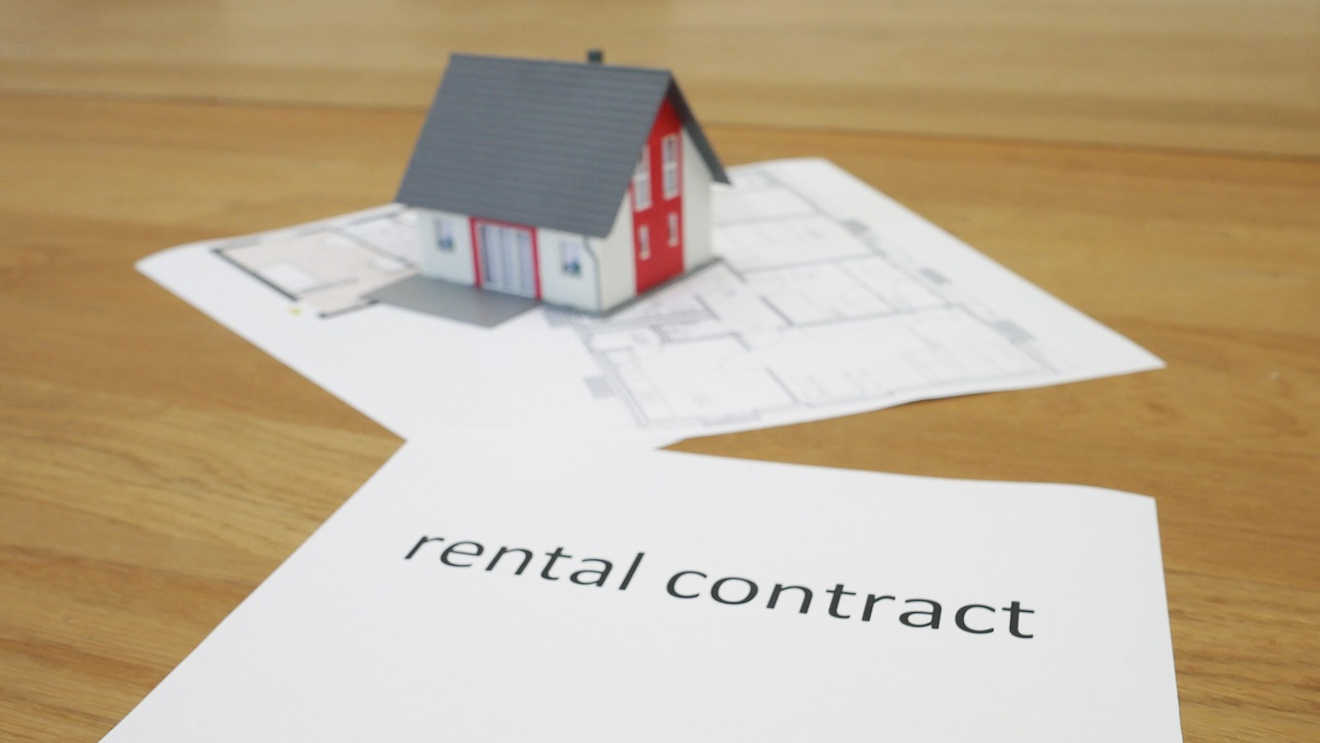
Generally, the security deposit is 1 month's rent. Some property owners may ask for a 2 month deposit, but this is becoming less common. With all of our long term rentals we require the tenant to take out a cheap form of house insurance called Tenants Insurance (usually about €25 pcm). This avoids the need to charge such a large deposit to cover damage. It also makes the check out procedure a whole less stressful.
The security deposit is usually paid at the time of reservation and it is non-refundable should you cancel the reservation before arrival. It is not fair to expect a property owner to hold your dates for up to 6 months in advance and for you then to cancel the reservation 2 weeks before arrival. The Owner will have missed out on a significant amount of rental income and lost other potential bookings. With our Owners, where we are able to find alternative clients in the cases of cancellations, we do ask them to refund the security deposit. We also advise all customers to arrange travel insurance to cover them for trip cancellations.
The security deposit is usually refunded within 2 weeks of your departure, once all utility bills have been settled and any damage rectified.
4. Who keeps hold of the deposit for a French long term let?
Generally for most long term rentals under 12 months, the deposit is held by the landlord.
5. What does the security deposit cover?
The deposit is cover accidental damage to the property. It is not designed to cover wear and tear. You have to be very careful about this, because we have seen Property Owners with very different perspectives on this. In France, if you rent a house for a 3 year period, you are expected to return the property back to the Owner in its original condition (almost repainting the house, replacing Ovens which degraded over time, etc). But for rentals of less than 12 months, you are in effect leasing the house under a holiday rental contract (location de saisionniere). In such instances, reasonable wear and tear is built into the contract as a condition of the rental. This doesn't mean that you can go around scuffing all the walls and marking the floors, but equally you are not expected to repair anything which stops working or worn items.
What you should insist upon is that a good set of photos are taken at the start of the rental period to document any existing damage, cracks, marks, etc. This then forms the basis of establishing the condition of the property.
6. How much notice period do I have to provide if I want to end the long term rental?
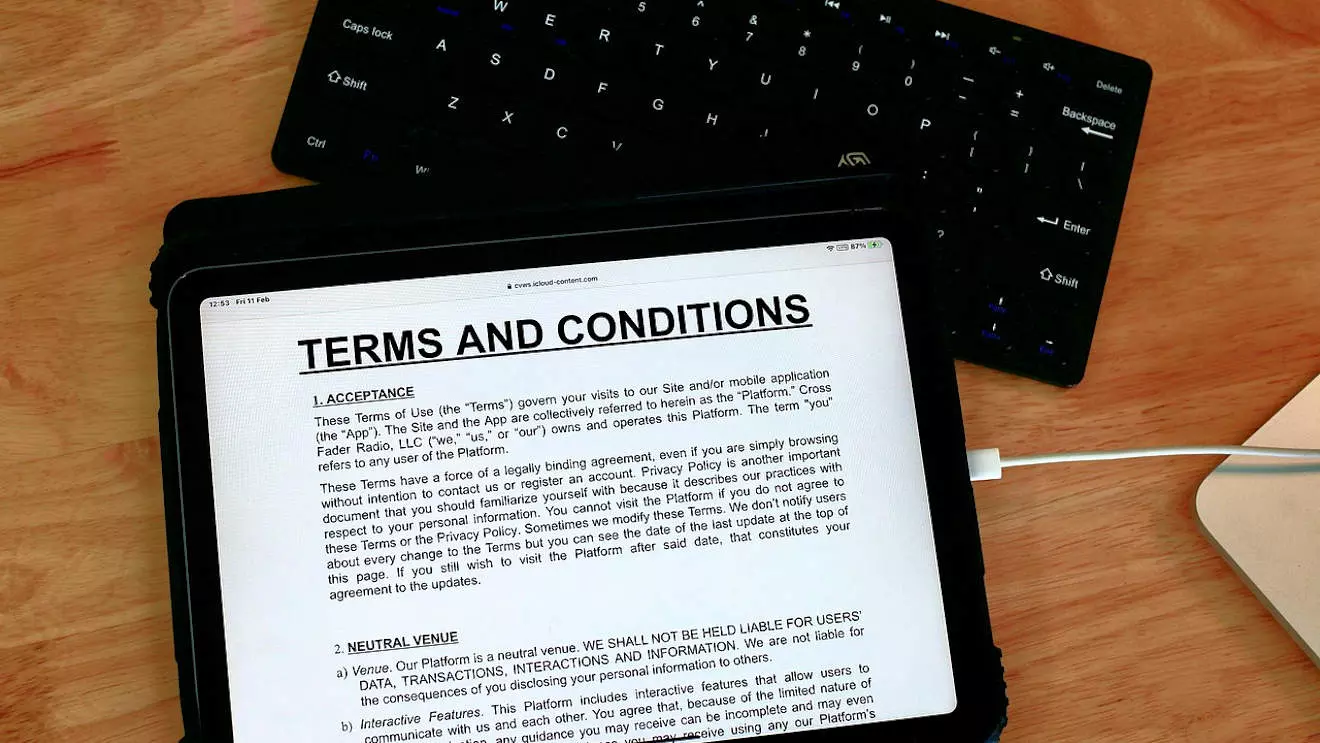
The standard rental period for tenants in France is 1 month. For landlords the standard notice period is 3 months.
In some cases, the landlord may ask for a long notice period, especially where your rental period starts at the beginning of the summer (and they could suffer severe financial loss if you only stay for 2 months as opposed to 12 months). In such situations, some tenants have said to us that this is not lawful. The answer is, that if the agreed notice period was a fundamental condition of the rental being granted by the landlord (ie, they would not have rented the property to you unless there was a 3 month notice period), then the contract is valid and you will be expected to honour the contract.
7. What local taxes will I have to pay?
In France there are two different property taxes:
- Taxe fonciere is a tax on the property value (like a land tax). This is always paid by the property owner.
- Taxe d'habitation is a local community tax that is used to pay for local services like garbage collection, street lighting and the TV licence fee. The tax is charged based on the size of the property and also the financial circumstances of the residents and whether you have children. The tax varies from commune to commune and there is a very complicated formula for calculating it. The French government is looking to phase-out this tax for 80% of people. For shorter rental periods the property owner will continue to pay the tax. For long rental periods the cost is put onto the tenant
In theory, French law dictates that whoever is present in the property on 1 January is liable to pay the taxe d'habitation for that year. However, this is based on the principle that the person liable for the tax is a permanent or semi-permanent resident. If you are only renting for 3 months, then you would not fall into this category. If you are renting for in excess of 6 months, then you may be seen as semi-permanent.
Choosing the right long term rental in France
Here is a sample of some of the latest houses for long term rent that we have added to our site. Please check the availability calendars for the most up-to-date availability. To visit all of the long term lets in France advertised on Long term rentals in France, please follow the link Long term lets in France.
:
Neffies villa for long term rentals Southern France (Ref: 1672)
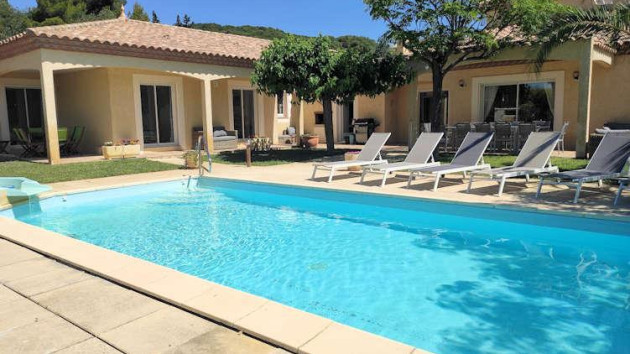 This large 5 bedroom villa for long term rentals is perfect for a long stay in Southern France over the winter period. This beautiful sunny villa is located in the pretty Southern France village of Neffies, near Pezenas and the Languedoc coast. The villa has a large swimming pool, together with a separate spa pool. There is a large garden with plenty of privacy, a spacious lounge, well-equipped kitchen and a games room. This long term rentals villa is a pleasant 5 minute stroll into the village, where you will find an excellent restaurant, bar, wine cave, shop, tennis court and playground. The villa comes with secure parking, air conditioning (reversible), Wi-Fi and UK satellite TV. The beaches are 30 mins away and nearby there is superb walking, cycling, riding, windsurfing, sailing, tennis and golf. The villa comes with:
This large 5 bedroom villa for long term rentals is perfect for a long stay in Southern France over the winter period. This beautiful sunny villa is located in the pretty Southern France village of Neffies, near Pezenas and the Languedoc coast. The villa has a large swimming pool, together with a separate spa pool. There is a large garden with plenty of privacy, a spacious lounge, well-equipped kitchen and a games room. This long term rentals villa is a pleasant 5 minute stroll into the village, where you will find an excellent restaurant, bar, wine cave, shop, tennis court and playground. The villa comes with secure parking, air conditioning (reversible), Wi-Fi and UK satellite TV. The beaches are 30 mins away and nearby there is superb walking, cycling, riding, windsurfing, sailing, tennis and golf. The villa comes with:
- 5 double bedrooms
- 3 bathrooms
- Private pool
- Beautiful village location
- Roof terrace
This large villa to rent in France, is available for long term rentals for 3-6 months and the Owners will also consider 12 month rental periods as well. The monthly rent will vary according to the length of the rental period and the season (guide price €1850 + bills).
Available from from mid-September 2024 to June 2025.
Riverside farmhouse to rent long term in Lot France Ref: 1995
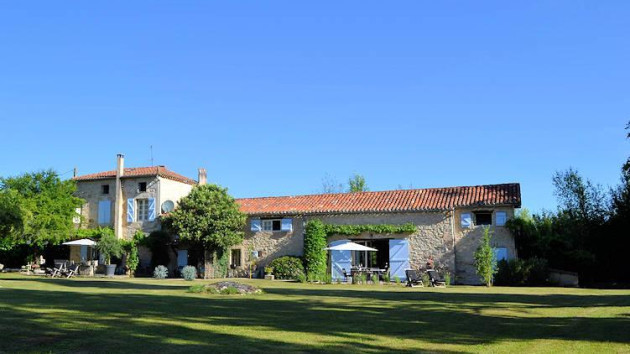 This beautiful 3 bed farmhouse by the edge of the River Lot in South West France, is available for long term rentals between October to May from €1250 per month + bills. The farmhouse is located on the border of the Dordogne and Lot departments, in between Bergerac and Cahors. The nearby village of Albas has a restaurant and shop and within 15 mins you can visit some beautiful sites. The house contains:
This beautiful 3 bed farmhouse by the edge of the River Lot in South West France, is available for long term rentals between October to May from €1250 per month + bills. The farmhouse is located on the border of the Dordogne and Lot departments, in between Bergerac and Cahors. The nearby village of Albas has a restaurant and shop and within 15 mins you can visit some beautiful sites. The house contains:
- 3 bedrooms
- 3 bathrooms
- Well-equipped kitchen
- Pet friendly
- WiFi internet
- Large garden
- Direct access to river + rowing boats
- Close to restaurant and shop
This house is available to rent between October to May. The guide rental price is €1800 per month + bills.
L'Horizon - Provence long term rental apartment France Ref: 1984
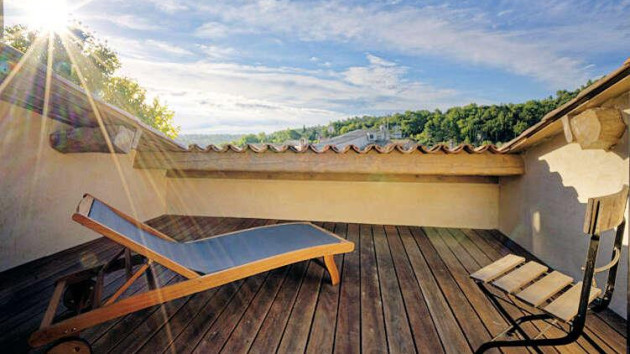 L´Horizon apartment for long term rentals is located in the beautiful village of Beaumont-de-Pertuis in Provence, France. This bright and beautiful top floor apartment features a private terrace with stunning views. The village of Beaumont-de-Pertuis is located on the edge of the Luberon National Park (an area of Outstanding Natural Beauty) and is just 40 mins from Aix-en-Provence. Marseille airport is 50 mins and the French Riviera coast is just over 1 hour. The apartment comes with
L´Horizon apartment for long term rentals is located in the beautiful village of Beaumont-de-Pertuis in Provence, France. This bright and beautiful top floor apartment features a private terrace with stunning views. The village of Beaumont-de-Pertuis is located on the edge of the Luberon National Park (an area of Outstanding Natural Beauty) and is just 40 mins from Aix-en-Provence. Marseille airport is 50 mins and the French Riviera coast is just over 1 hour. The apartment comes with
- 1 bedroom
- 1 bathroom
- Private terrace
- Well-equipped kitchen + washing machine
- WiFi and flat screen TV (satellite channels)
- Stunning views
- Beautiful location
The long term rental prices do not include the utility bills. There is a monthly provision of €150 towards the electricity, water, internet and communal taxes.
Long term rentals (October -May): from €1150 per month + bills
For 12 month long term rental prices, please enquire. Please note that higher rates will apply during June to September.
The Bishop's House for long term rentals Caux France Ref: 1955
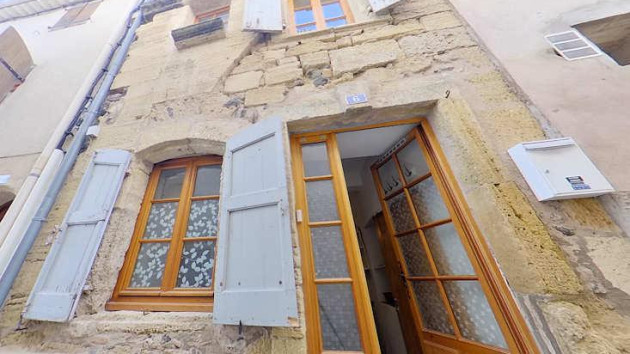 This Caux house for long term rentals in South France is an ideal rental for a couple or small family on a long vacation in France. The house is finished to a high standard and it benefits from a lovely courtyard garden. The house is located in a very quiet and friendly neighbourhood in the village. The Owners would prefer a longer rental period of 6-12 months. The house comprises the following features:
This Caux house for long term rentals in South France is an ideal rental for a couple or small family on a long vacation in France. The house is finished to a high standard and it benefits from a lovely courtyard garden. The house is located in a very quiet and friendly neighbourhood in the village. The Owners would prefer a longer rental period of 6-12 months. The house comprises the following features:
- 3 bedrooms
- 2 bathrooms
- Private courtyard garden
- Friendly-neighbourhood
- Parking nearby
- WiFi and flat screen TV
- Walking distance to boulangerie, restaurants
- Available for 12 month annual rentals
This house is available to rent from January 2025 and the Owner will consider rental periods of up to 12 months. The guide rental price is €800 pcm + bills.
Farmhouse for long term rentals, Carcassonne, South France (Ref: 1675)
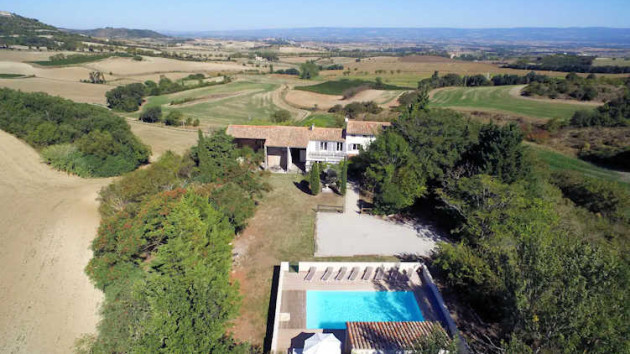 This beautifully renovated farmhouse for long term rentals in South France is located close Carcassonne and comes with 3 bedrooms, a spacious living room and a large private swimming pool. The property has stunning views of the medieval village of Fanjeaux, which is located in between Carcassonne and Mirepoix. The Farmhouse is equipped to a high standard and is very bright and airy inside. The Farmhouse provides total peace and quiet, yet is only a 2 minute drive to the village where you will find an excellent boulangerie/patisserie, cafe/tabac, restaurant and shop. This long term rental property sleeps 6 people in comfort. The farmhouse comes with :
This beautifully renovated farmhouse for long term rentals in South France is located close Carcassonne and comes with 3 bedrooms, a spacious living room and a large private swimming pool. The property has stunning views of the medieval village of Fanjeaux, which is located in between Carcassonne and Mirepoix. The Farmhouse is equipped to a high standard and is very bright and airy inside. The Farmhouse provides total peace and quiet, yet is only a 2 minute drive to the village where you will find an excellent boulangerie/patisserie, cafe/tabac, restaurant and shop. This long term rental property sleeps 6 people in comfort. The farmhouse comes with :
- 3 bedrooms
- 3 bathrooms
- Private parking for 3-4 cars
- WiFi and flat screen TV
- Large garden
- Central heating and fireplace
- Table tennis & swing
- Stunning countryside views
This farmhouse near Carcassonne, France, is available for 3-6 month rentals between mid-October and April from €1200 pcm + bills. Higher prices may apply over the summer season.
Villa Plascassier 4 bed long term rentals Cote d'Azur France Ref: 1996
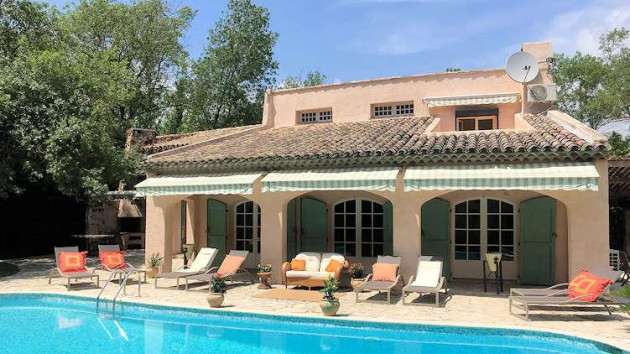 This lovely large 4 bed villa in Plascassier, Cote d'Azur, is available for long term rentals between October to April. The villa comes with 5,000 m2 of land and has a private swimming pool, garage, electronic gates and plenty of parking. Plascassier is a lovely medieval hillside village, that was once home to Edith Piaf. The village has 2 excellent restaurants and is surrounded by olive groves and fields of Jasmine and Roses (grown to supply the local perfume factories in Grasse).
This lovely large 4 bed villa in Plascassier, Cote d'Azur, is available for long term rentals between October to April. The villa comes with 5,000 m2 of land and has a private swimming pool, garage, electronic gates and plenty of parking. Plascassier is a lovely medieval hillside village, that was once home to Edith Piaf. The village has 2 excellent restaurants and is surrounded by olive groves and fields of Jasmine and Roses (grown to supply the local perfume factories in Grasse).
The villa features:
- 4 bedrooms (sleeps 8)
- 3 bathrooms
- 12m x 5m private pool
- Well-equipped kitchen + laundry room
- Private parking for 4 cars
- WiFi and international TV channels
- Lovely views
- 5,000m2 of grounds
- Quiet residential location on the edge of village
This 4 bed villa in Plascassier, Cote d'Azur, is available for long term rentals between October to April. Prices are based on a 6 month rental period. Minimum stay is 3 months. Not available May to September. The rental price does not include the utility bills (there is a monthly provision of €350 towards the electricity, water, WiFi and communal taxes). Firewood to be purchased separately.
Long term rentals (October to April): from €2750 per month + bills
Thinking of moving to France in 2024 . . . ?
 Read our article on the Moving to France with your family
Read our article on the Moving to France with your family
Interested in long term rentals in the South of France? Check out our selection of Long term rentals by the beach in France currently available for rent
Read our article on the 10 best places to rent long term in France
Contact Iain by Email if you have any particular questions you would like to ask about living in the South of France.

